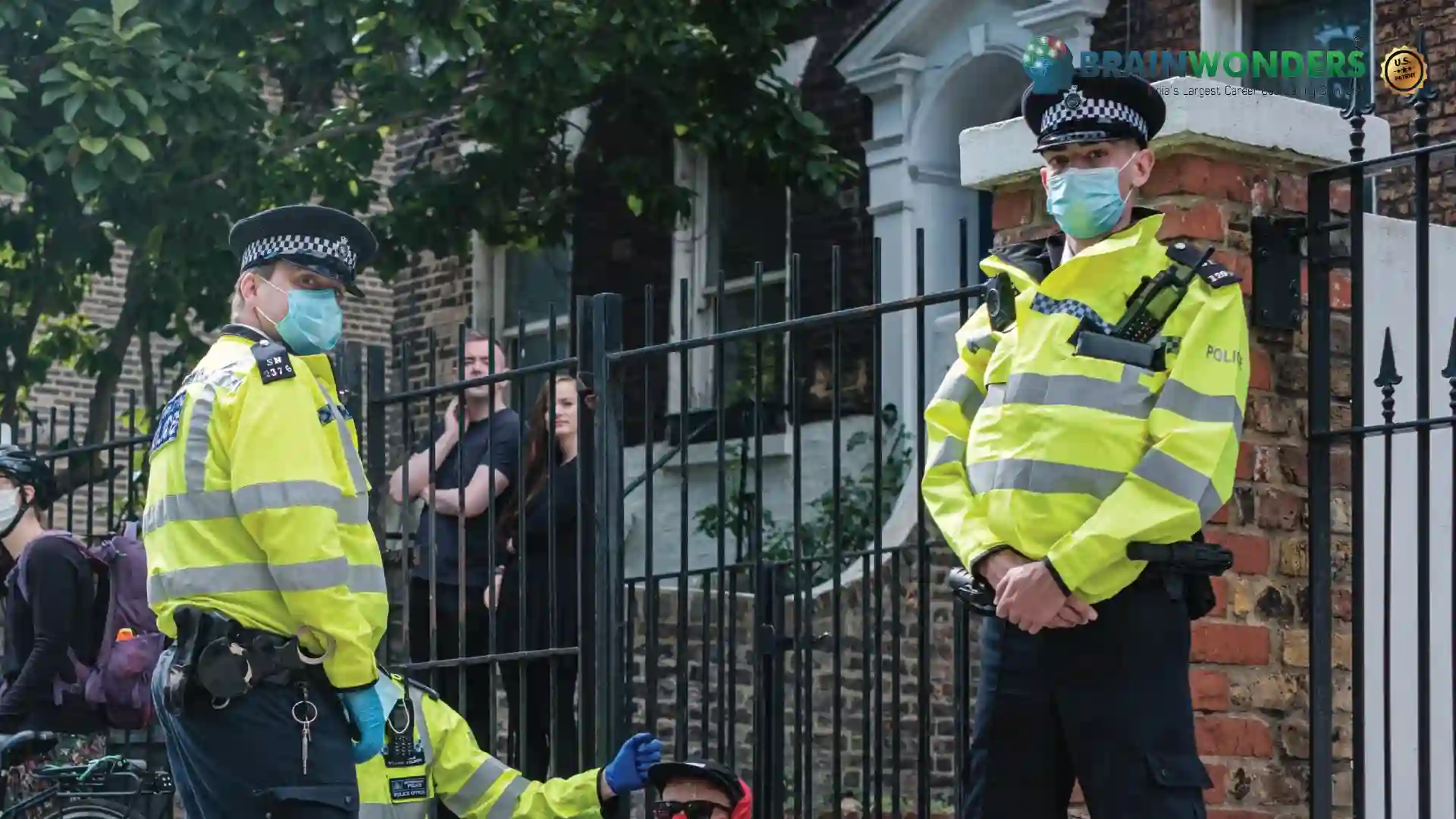How to become an Equal Opportunity Representatives and Officer
Overview, Courses, Exam, Colleges, Pathways, Salary

Overview
Who is Equal Opportunity Representatives and Officer ?
Equal Opportunity Representatives and Officers (EOR/EO Officers) play a crucial role in promoting and ensuring equal opportunity, diversity, and inclusion within an organization. Their primary responsibilities may include:Policy Development: Developing and implementing policies and procedures related to equal opportunity, affirmative action, and nondiscrimination within the organization. They work to create a framework that supports fairness, diversity, and inclusivity.Compliance and Training: Ensuring that employees or students are aware of equal opportunity laws, policies, and procedures through training sessions, workshops, and educational programs. They educate individuals about their rights, responsibilities, and the importance of maintaining an inclusive environment.Complaint Handling: Receiving and investigating complaints related to discrimination, harassment, or unequal treatment. EO Officers provide a safe and confidential channel for reporting incidents and take appropriate action to address and resolve the issues. They conduct thorough investigations, maintain documentation, and work towards fair resolutions.Guidance and Consultation: Providing guidance and consultation to employees, students, and management regarding equal opportunity and diversity matters. They offer advice on best practices, help resolve conflicts, and promote a positive and inclusive work or educational culture.
Typical day at work
What does Equal Opportunity Representatives and Officer do?
Equal Opportunity Representatives and Officers (EOR/EO Officers) play a crucial role in promoting and ensuring equal opportunity, diversity, and inclusion within an organization. Their primary responsibilities may include:
Policy Development: Developing and implementing policies and procedures related to equal opportunity, affirmative action, and nondiscrimination within the organization. They work to create a framework that supports fairness, diversity, and inclusivity.
Compliance and Training: Ensuring that employees or students are aware of equal opportunity laws, policies, and procedures through training sessions, workshops, and educational programs. They educate individuals about their rights, responsibilities, and the importance of maintaining an inclusive environment.
Complaint Handling: Receiving and investigating complaints related to discrimination, harassment, or unequal treatment. EO Officers provide a safe and confidential channel for reporting incidents and take appropriate action to address and resolve the issues. They conduct thorough investigations, maintain documentation, and work towards fair resolutions.
Guidance and Consultation: Providing guidance and consultation to employees, students, and management regarding equal opportunity and diversity matters. They offer advice on best practices, help resolve conflicts, and promote a positive and inclusive work or educational culture.
Abilities and Aptitude needed
What are the skills, abilities & aptitude needed to become Equal Opportunity Representatives and Officer?
To become an effective Equal Opportunity Representative or Officer, several skills, abilities, and aptitudes are necessary. Here are some important qualities for success in this role:
Knowledge of Equal Opportunity Laws: Equal Opportunity Representatives and Officers should have a solid understanding of relevant laws and regulations, such as Title VII of the Civil Rights Act, the Americans with Disabilities Act (ADA), the Age Discrimination in Employment Act (ADEA), and other federal, state, and local laws governing equal employment opportunities.
Analytical and Problem-Solving Skills: These professionals need strong analytical skills to assess workplace practices, policies, and procedures for potential discrimination or biases. They should be able to identify issues, investigate complaints, and develop effective solutions to promote fairness and inclusivity.
Communication and Interpersonal Skills: Excellent communication skills are crucial for Equal Opportunity Representatives and Officers to effectively communicate with employees, managers, and executives. They must be able to convey complex information clearly, listen actively, and provide guidance and training on equal opportunity policies.
Mediation and Conflict Resolution: Equal Opportunity Representatives and Officers often act as mediators in resolving workplace conflicts and discrimination complaints. They need strong mediation and conflict resolution skills to facilitate dialogue, negotiate solutions, and ensure a fair resolution for all parties involved.
Ethical and Confidentiality Standards: These professionals must uphold strict ethical standards and maintain confidentiality when handling sensitive employee information and investigations. They should demonstrate integrity, impartiality, and a commitment to fairness in their work.
Knowledge of Diversity and Inclusion Practices: Equal Opportunity Representatives and Officers should have an understanding of diversity and inclusion best practices. This includes awareness of cultural differences, unconscious biases, and strategies to create inclusive work environments.
Training and Education Skills: Equal Opportunity Representatives and Officers often conduct training sessions and workshops to educate employees about equal opportunity policies, diversity, and inclusion. Strong presentation and facilitation skills are necessary to effectively deliver training materials and engage participants.
Attention to Detail and Documentation: Keeping accurate records, documenting investigations, and maintaining a well-organized filing system are essential tasks for Equal Opportunity Representatives and Officers. They need meticulous attention to detail to ensure compliance with reporting requirements and to support any potential legal proceedings.
Pathways
How to become an Equal Opportunity Representatives and Officer?
Entrance Exam
Entrance Exam for Equal Opportunity Representatives and Officer ?
Courses
Which course I can pursue?
Best Colleges
Which are the best colleges to attend to become an Equal Opportunity Representatives and Officer?
Industries
Which Industries are open for Equal Opportunity Representatives and Officer?
Equal Opportunity Representatives and Officers, also known as Equal Employment Opportunity (EEO) Representatives and Officers, work to promote fair and inclusive practices in the workplace and ensure compliance with laws related to equal employment opportunities. While their primary role is typically found within human resources departments, Equal Opportunity Representatives and Officers can be employed in various industries and sectors. Some of the industries that commonly employ Equal Opportunity Representatives and Officers include:
Corporate Sector: Equal Opportunity Representatives and Officers are often employed in large corporations and multinational companies. These organizations have dedicated human resources departments that oversee EEO initiatives and ensure compliance with equal opportunity laws and regulations.
Government Agencies: Many government agencies at the federal, state, and local levels employ Equal Opportunity Representatives and Officers. These professionals work to uphold equal employment opportunities and enforce anti-discrimination laws within government organizations.
Nonprofit and Advocacy Organizations: Nonprofit organizations and advocacy groups that focus on civil rights, social justice, and equality may employ Equal Opportunity Representatives and Officers. These professionals work to ensure fair and inclusive practices within the organization and advocate for equal opportunities in the broader society.
Educational Institutions: Colleges, universities, and other educational institutions often have dedicated Equal Opportunity Offices or departments. Equal Opportunity Representatives and Officers in these institutions work to promote equal access to education and ensure that students, faculty, and staff are treated fairly and without discrimination.
Healthcare and Medical Facilities: Equal Opportunity Representatives and Officers can be found in healthcare organizations, including hospitals, clinics, and medical centers. They help enforce equal employment opportunity policies and ensure fair treatment for healthcare professionals and patients alike.
Law Enforcement and Military: Police departments, correctional facilities, and military organizations may have Equal Opportunity Representatives and Officers to address issues of discrimination, harassment, and promote diversity and inclusion within these institutions.
internship
Are there internships available for Equal Opportunity Representatives and Officer?
Career outlook





.webp)

